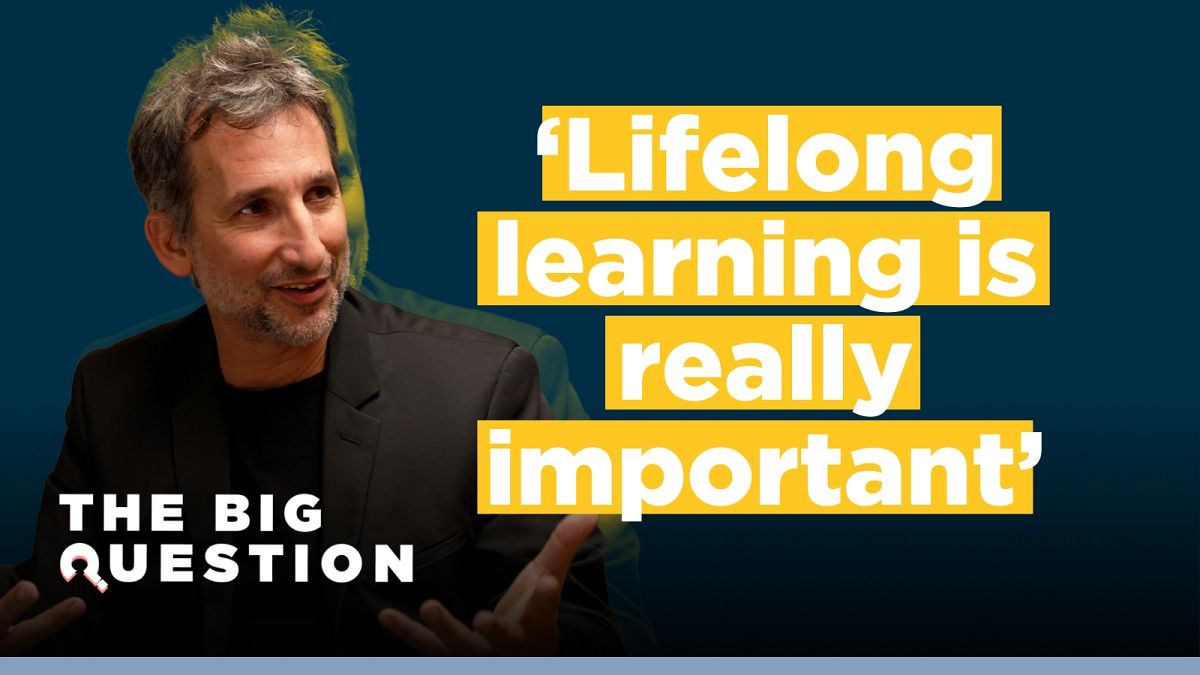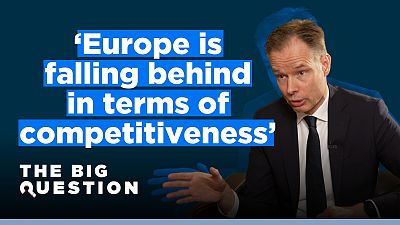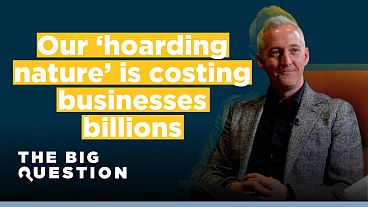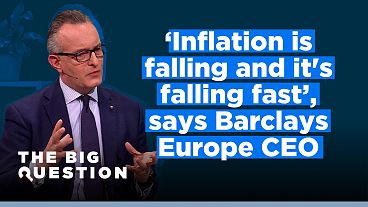“You should feel legitimate to have the ambition to become CEO, ministers, leaders of tomorrow.”
Formal education isn’t for everyone but we’re often led to believe that it’s the only path to success.
When looking at Forbes’ Global 2000 of 2023, the ranking of the world’s biggest companies, almost all of the CEOs or senior leaders of the top 10 companies have a Masters of Business Administration (MBA). Only Bank of America’s CEO, Brian Moynihan had no business qualifications, but as he holds a doctorate in law, he’s hardly uneducated.
It’s been a long time since many of today’s C-suite did their studies and the world has changed a lot. As we look towards the future, we ask the question, is it possible to become a CEO or high flying executive without an expensive MBA?
In this episode of The Big Question, James Thomas speaks to Eloïc Peyrache, Dean of HEC Paris, Europe’s leading business school to discuss how education can keep up with the changing world and if it’s really worth going to business school?
Do you need a business degree to be a CEO?
Founded in 1883, HEC Paris (École des hautes études commerciales) is ranked amongst the top business schools in the world and offers a range of post-graduate courses. From its class of 2023, 91% of graduates had a successful job offer within 3 months.
According to research done by the French government, in the EU-22, on average, people aged 25-64 with ISCED 7 and 8 qualifications (Masters or Doctorate level degrees) earn 68% more than those with an ISCED 3 qualification (upper secondary level).
According to Statista, the average salary for a HEC graduate in 2022 was $165,558 (€154,225.55). To put that in perspective the average salary in the EU at that time was €26,136.
Whilst those statistics certainly demonstrate that a post-graduate education is advantageous, an entrepreneurial mindset or business spark doesn’t necessarily come from doing a Masters.
The British billionaire Richard Branson shared on his LinkedIn profile: “I never went to university, but I consider life to be one long educational experience.”
Branson is joined in the highly-successful but not highly educated ranks by Dell’s founder Michael Dell who dropped out of the University of Texas aged 19 after earning a gross profit of $200,000 (€186,310) in his first year of business; Zara founder Amancio Ortega who left school at 14 and learnt to make clothes by hand from a local shirtmaker; Napster founder and first President of Facebook Sean Parker who, by being recruited by the FBI during high school and earning more than $80,000 a year (€74,524), convinced his parents to let him skip university and start building his career; and Tumblr founder David Karp who taught himself how to code after dropping out of high school.
“Nothing is really impossible,” says Eloïc.
“You don't have to go through business school but it will make a difference, it could be a fast track and the more complex and uncertain our world, the more leadership skills will be very important.”
Eloïc says they teach their students how to set the vision, connect the dots and speak the lingo of their chosen field.
“They would never be as good as a coder, as an engineer but [they can] discuss. And they make things happen, they get things done.”
Will an MBA fast track my career?
Eloïc also stresses that a big part of ensuring the future workforce is as diverse as our society is by working on people’s ambition, to make them believe they can dream big.
For this reason HEC Paris isn’t driven by high future salaries (though it’s a nice by-product for their graduates) but by helping students to figure out who they want to be and choose a series of courses to nurture that.
“You should feel legitimate to have the ambition to become CEOs, ministers or leaders of tomorrow.”
Though the pay check at the end might be appealing, an MBA doesn’t come without cost. The autumn 2024 intake at HEC will cost €98,000 for the MBA and €110,000 for the executive MBA including all books and materials.
Other prestigious European institutions charge similar fees such as London Business School (€134,467), INSEAD (€99,500), IESE (€105,000) and SDA Bocconi (€ 75,000).
Can a university keep up with changing trends?
With things like TikTok, influencers, remote working and the 4-day working week - the world of business has changed enormously in recent years and it’s not set to slow down. But can education keep up and stay relevant?
HEC Paris now runs a course on planetary boundaries that all students have to take in their first semester on campus which is aimed at helping them understand the effects of their decision-making.
Though climate change might sound like a buzzword to many, it’s something that’s here to stay. What Eloïc and his team at HEC has learnt is not to include everything into the syllabus that’s suddenly on everyone’s lips.
“I remember once [the students] were all talking about very important tools to manage big data and digitalisation. In the consulting sector, it was almost 100% said 'I don't know how to use that Excel-type of tool and, this is costly for me.'
“So I came back on campus [and said] 'Hey, guys, we need to do something about it.' The following year, no one talked about it,” Eloïc recalls.
He says training students to use specific tools isn’t their main mission because of how quickly things change and become irrelevant. Instead, Eloïc urges people to consider education as a lifelong thing (for new tools) and for students at HEC, they focus on teaching strategic thinking and techniques to be able to navigate any new challenge the world poses.
The Big Question is a series from Euronews Business where we sit down with industry leaders and experts to discuss some of the most important topics on today’s agenda.
Watch the full episode above to learn more about how business education is adapting to the changing world.



